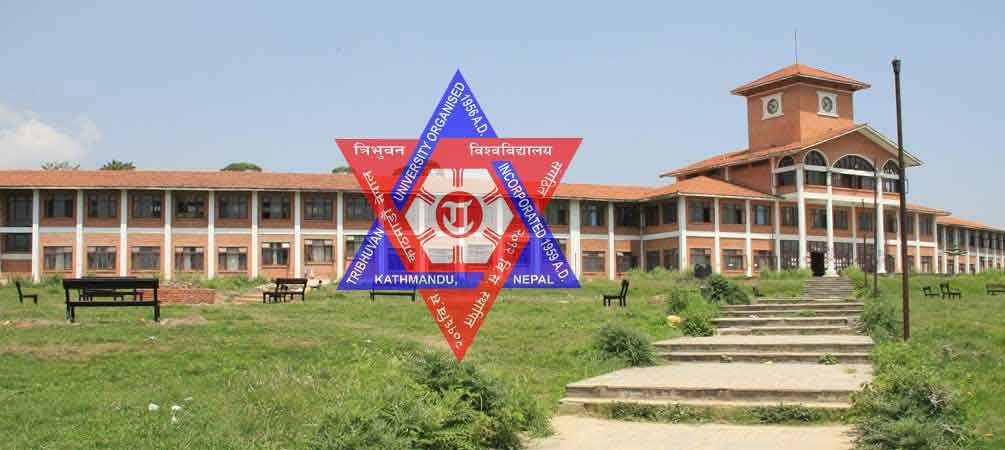
Unrest and Lockdowns at Nepali Universities: A Growing Concern
A few days ago, a group of students vandalized the office of the Vice-Chancellor at Tribhuvan University and locked the workspaces of three key officials. Along with the damage to university property and office lockdowns, they issued physical threats to the university’s central leadership.
Following these threats, the university issued a public appeal for the protection of its property and sought legal action against those involved in the vandalism and threats. However, the offices remain locked, and those responsible have yet to face any legal consequences.
Since the incident, the Vice-Chancellor, Rector, and Registrar have been unable to enter their offices. “We are not in a position to return to the university premises. Critical work is being conducted from campuses and offices outside the Kirtipur premises,” said Registrar Dr. Kedar Rijal.
Prolonged Lockout at Nepal Sanskrit University
At Nepal Sanskrit University in Beljhundi, Dang, the central office and research center had been locked since Poush 12 and were only reopened on Friday. Another student organization enforced a separate lockout for over five months, disrupting all academic, administrative, and financial operations.
“As staff could not receive their salaries due to the prolonged lockout, many have faced household financial difficulties. In one case, a mother could not afford treatment during childbirth,” stated Associate Professor Navaraj Khatri. “Even minor issues are now being met with lockouts, bringing all university activities to a halt and severely affecting the academic environment.”
Escalating Violence Against University Officials
Last year, a group of students blackened the face of Mahesh Dahal, Chairperson of the Eastern University Service Commission, accusing him of not fulfilling their demands. Two years ago, Associate Professor Diwakar Pandey of Amrit Science Campus was assaulted over disagreements related to BSc CSIT admissions. Similar incidents occurred at Tri-Chandra Campus.
These are just a few representative examples of student-led disorder in universities. Lockouts, assaults, and threats against officials are becoming common across various campuses. Although student organizations claim to advocate for rights, their actions are increasingly disruptive. The lack of consequences, even with clear identification of those involved, has weakened university leadership and emboldened future protestors.
Safety Concerns and Political Interference
Even if officials enter their offices, they face the psychological fear of potential arson or violence. Dr. Dhaneshwar Nepal, Vice-Chancellor of Nepal Sanskrit University, remarked that such incidents will not decline until the major political parties and the government develop a shared understanding to prevent university lockdowns.
“Political parties are now using students to further their own agendas. Until the parent parties take responsibility, it will be difficult to expect change from students alone,” Dr. Nepal stated.
Widespread Organizational Tactics
These acts are not limited to a single student group. Most student organizations initiate protests immediately after a Vice-Chancellor is appointed from an opposing political alignment. In several cases, party leaders have reportedly protected individuals responsible for violent incidents. University officials also note that students often present public demands while privately pursuing hidden benefits.
Mixed Accountability and Political Tensions
Dujang Sherpa, President of the Nepal Student Union, condemned these actions as unacceptable, even from those claiming to fight for student rights. However, he argued that university officials also share the blame. According to him, the recent incident at Tribhuvan University was exaggerated by the administration and police.
Impact on Higher Education and Student Exodus
Due to growing distrust in domestic universities, the number of students pursuing higher education abroad is rising. Registrar Rijal explained that repeated attacks and property damage are pushing students to seek education overseas.
“Expressing disagreement and engaging in discussion is natural, but resorting to lockouts and vandalism in the 21st century sends a negative message both nationally and internationally,” said Rijal. “Even ministers and the Prime Minister have been informed of these events, yet no solution has been reached.”
Government Response and Past Incidents
The Ministry of Education, Science, and Technology has expressed deep concern regarding the incident at Tribhuvan University. Ministry spokesperson Shiv Kumar Sapkota called the vandalism an act of indiscipline. He stated that consultations are underway with top officials from the Home Ministry to identify and prosecute those responsible.
In the past, one student group enforced a lockout at Tribhuvan University for over 400 days. The trend of immediately launching protests whenever a Vice-Chancellor is appointed from a different political ideology has become widespread. Other student organizations have also followed this approach.


